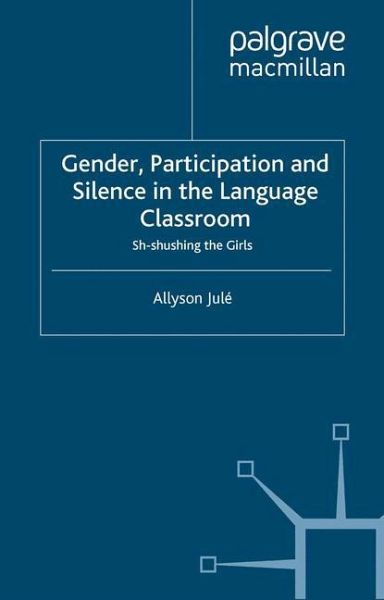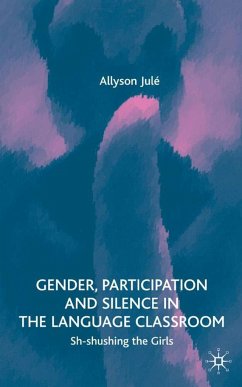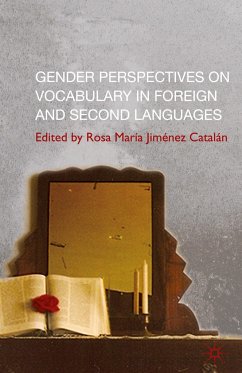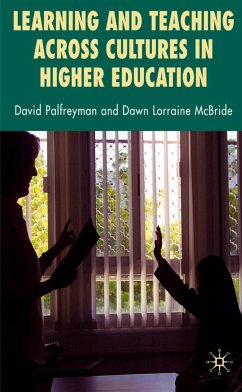
Gender, Participation and Silence in the Language Classroom
Sh-shushing the Girls
Versandkostenfrei!
Versandfertig in 6-10 Tagen
76,99 €
inkl. MwSt.
Weitere Ausgaben:

PAYBACK Punkte
38 °P sammeln!
In this first-hand study of the relationship of gender, ethnicity and the participation of children within an English-language teaching classroom, Julé re-assesses Lacan's approach to belonging with other theoretical approaches to gender and language, making use of case-study methods. She asks key questions: Are there observable tendencies in the way that boys and girls receive and use talk in the classroom? How might such tendencies be constructed or encouraged within an ESL classroom, where gender and ethnicity intersect in particular ways?












